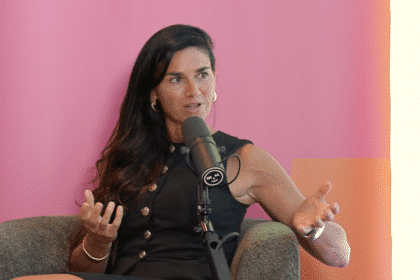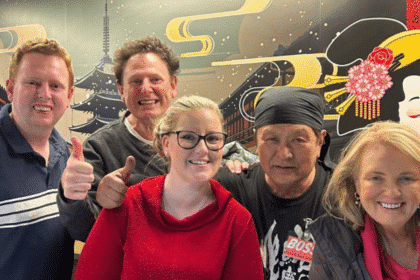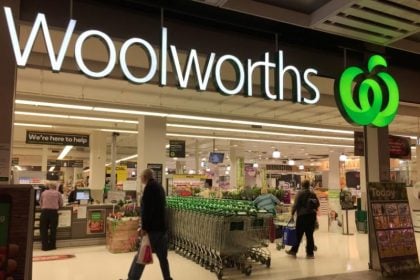It’s that time of the year again, and, just as last year, businesses announce their stances on Australia Day. Last week, Woolworths became the first to make its stance known with a huge backflip on their 2024 plans.
Australia Day has been a date of much contention for many years now, with the public holiday recognised as a day of mourning among Indigenous communities, marking the day the British colonised Australia and invaded Indigenous land. Last year, Woolies came under fire for its decision not to stock merchandise to celebrate the controversial day.
This year, the supermarket giant confirmed that it will have a “Perfect for Australia Day” section focusing on selling the kinds of foods that Australian people like to eat on Australia Day. The brand also said that Woolworths-owned Big W Group would sell products people might need as they gathered over the long weekend.
“While we did make changes to our merchandise range last Australia Day due to decline in demand in our stores, we listened and recognised that many customers and teams wanted us to do more to help them celebrate the day,” a spokesperson for Woolworths said.
“In our Supermarkets we will do this through the lens of great Australian food that is perfect for the day, while BIG W will also showcase products perfect for family and friends coming together over the Australia Day long weekend.
“Customers can expect to see ‘Perfect for Australia Day’ sections in our Supermarkets and BIG W in the lead up to the day.
“We also now have Aussie-made flags available for sale in our stores – both Supermarkets and BIG W – while our online marketplaces have a range of Aussie themed merchandise for customers to choose from.
“Our store team members are also welcome to celebrate the day in-store.
“We respect everyone’s choices in how they choose to spend the day.
“Our position is aligned with the theme for the day from the National Australia Day Council – reflect, respect and celebrate”.
This year, the company will reportedly sell Australian-made Australian, Aboriginal and Torres Strait Islander flags at both Woolworths and Big W. It also said that its online stores will stock other Australia Day merchandise.
The great Australia Day split!
In 2024, Woolworths came under fire after the announcement that it wouldn’t be stocking Australia Day merchandise in its stores. The decision, the supermarket giant claimed, was based on “declining sales” and recognised that “there’s been broader discussion about 26 January and what it means to different parts of the community”.
In an appearance on Nine’s Today show, Woolworths boss at the time, Brad Banducci admitted that communication surrounding the decision to pull Australia Day merchandise from their shelves could have been handled better.
“I think we could clearly have done a better job of explaining our decision; that’s why I’m here,” he said in response to questioning from host Karl Stefanovic.
Banducci also confessed that he was concerned about the impact the decision was having on the Woolworths team. “I do feel anxious about the impact that this is having on our team. They are proud, hard-working Australians, and for them to be seen as anti-Australian or woke is fundamentally unfair”.
Banducci denied being an anti-Australia Day company, saying that the day means different things to different people and that the organisation encourages Australians to celebrate the day however they wish.
In a later appearance on Sunrise, Banducci was grilled by host Natalie Barr. He denied that the supermarket giant was making a political statement but rather reflecting the wants of their customers.
“I don’t think that is true… We’re focusing on what we do best, which is food and everyday needs,” Banducci said. “There is pressure out there on Australian families and affordability, so we focus on what we do best, which is that”.
Woolworths‘ plan to remove Australia Day merchandise off its shelves has resulted in several conservative politicians calling for a boycott. Several Queensland stores were also recently vandalised off the back of the decision. “Aussie Oi Oi Oi Woolies F*** U” was written in spray paint across the front of the Woolworth Tenerife store last week, and a flare was placed at the entrance, triggering the fire alarms.
Despite the conversation last year, a number of Aussie flag-themed items were still available to purchase through some of the group’s online outlets.
Aldi and Kmart were among the other stores that jumped on board last year, announcing they would not be stocking any Australia Day-specific merchandise. Neither has announced a stance in 2025, but a search for Australia Day on Kmart Online currently returns no results.
How can brands be better?
Last year, B&T sat down with Intrepid Travel’s chief customer officer, Leigh Barnes, to unpack how brands can successfully navigate the topic.
According to Barnes, the decision to take a political stand on these kinds of social debates really comes down to the type of brand you are and what you stand for. Certain businesses have a real stake in the game and are obligated to have an opinion; others just do it to score points within the public opinion.
“I think realistically, if it’s something that is impacting your people and your business, you should be speaking. But also, if you’ve done the work around it, with that comes an obligation that you do need to speak out,” said Barnes.
“If it’s in their wheelhouse, then 100 per cent, they have an obligation to have an opinion; if you haven’t done the work, and you are just doing it to get on the agenda or score some points, you probably don’t have a place”.
If a brand is going to pick a side, Barnes highlighted, the most important thing it can do is build a plan that ensures it is meeting the political stance in all aspects of your business, not just jumping on board a side when it is newsworthy.
“My advice to brands is to build a Reconciliation Action Plan. Start with the consultation process, where you get to have yarns with First Nations people. Listening and learning is the most powerful part. The same applies to any cause. You want to engage with your stakeholders, your partners, and your people – listen and chart a path forward,” Barnes said.
When asked if it is worth the risk for brands to pick a side on political issues, Barnes pointed out that businesses pick sides daily in colours, messaging, and what they write; it’s unavoidable. Unfortunately, the issue is that brands tend to bandwagon hop, jumping on either side and not doing the work to ensure it is done in the best way possible.
“Where I think brands and businesses get caught up in damage is where it doesn’t play a role for their business, where they’re doing it just to get used to a new stake, and it doesn’t have an impact on its people, it doesn’t have an impact on its product doesn’t have an impact on its brand. It is really just making some noise”.
Speaking to B&T last year, Dr Daniel Rayne, lecturer of marketing at RMIT said that more brands that we realise are distancing themselves from contentious dates like January 26, but these brands remain quiet on their social alliances to avoid backlash.
“The debate as to whether brands should be social beacons or not, has again come to light as Woolworths, K-Mart and Aldi have decided against stocking Australia Day merchandise.
“Brands are increasingly using contemporary sociopolitical issues as a marketing tool to stand out from the crowd.
“Normally, when brands adopt an activism strategy, they put their social support front and centre; however, perhaps driven by fear of isolating the market, big retailers have adopted a business decision focus first.
“Woolworths have adopted this ‘activism without activism’ approach, which signals how the ways brands engage in activism are constantly expanding and evolving.
“Putting business interests ahead of a firm social position makes their activism approach more palatable for shareholders”.
With Woolworths going back on plans from last year and many stores yet to speak publicly, it is clear that this conversation is far from over. With more focus than ever before on the social responsibility of brands, all eyes will be on other major retailers as their stances emerge.










